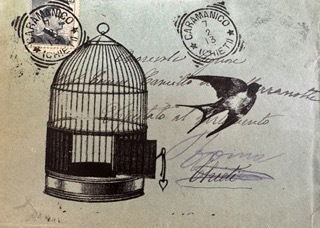Italy: From Sicily to Sardinia: My Journey in Property Investment
Exciting news! After three months in Sicily, Sardinia, and Tuscany, Italy, I'm still head over heels for Sicily, with Olbia in Sardinia following closely behind! I'm on the hunt for something inspiring and unique. Ideally, a property built before 1950, boasting Neo-Classical, Baroque, or traditional Sicilian architecture, with not necessarily an abundance of rooms but ample space nonetheless. I invite you to stay with me on this path of discovery. Follow along as I navigate the world of property investment and see where I'll choose to plant my roots. Let's continue this journey together, uncovering new insights and creating unforgettable experiences.
After inspecting 33 properties, scouring hundreds online, and engaging in numerous communications, I've hoarded a wealth of information and insight to digest. A few options have captured my heart, and I've concluded: Stay calm and avoid rushing into decisions hastily. The conclusion may seem like common sense, but nothing is common sense until information is processed and addressed.
Each area in Sicily is distinct. Whether investing in Sicily is sensible depends on your financial goals, risk tolerance, investment strategy and lifestyle. Thorough due diligence is imperative, as well as seeking professional advice and carefully weighing potential benefits and risks before making any decisions. If I had sufficient capital, diversifying my investment across various asset classes would have been wise, reducing risks. Does the long-term growth potential of Sicily, Sardinia, or any other place in Italy justify it as a property investment destination? The risks that can affect property values over time are not unique to Sicily but are similar to most countries, such as market volatility, changes in government policies, infrastructure development, economic growth/decline, and demographic trends. (What are the risks in South Africa?) For me, it's not just about investment returns but also the quality of the rest of my life.
Never rush if you're considering purchasing a property anywhere, especially in Europe! Consider the following. Very few character properties are in good condition. Evaluate the condition of the property and any necessary repairs or renovations that may be needed. Consider maintenance costs when calculating potential returns on investment. Is there potential for capital growth? Why are there so many properties currently available? What are the market predictions? Can you easily resell the specific property if necessary? Evaluate the property—a beautiful place with plenty of potential and a good price, but what about rental demand and vacancy rates, especially if you plan to generate rental income? Research rental rates in the area and assess the demand from tourists, students, or residents looking for long-term accommodation.
Let's dive into the next segment: Location of Property. Properties in desirable locations are more likely to attract tenants and appreciate value. Don't just fall for the heart (usually the old town) of a village or city. Look into what happens on the municipal outskirts, such as unsightly industrial developments. How "green" is the area? Infrastructure. Consider proximity to amenities, transportation links, hospitals, clinics, daily convenience stores/markets, and tourist attractions. Illegal immigration, etc., are also factors to be considered. Property Condition. Only a few character properties are in good condition. Few of the so-called bonuses the government provides for renovation are still a reality but, if available, are difficult to obtain. It's a lengthy process. Evaluate the condition of the property and any necessary repairs or renovations. Property Construction. The construction of the property is surely the most important. The walls are usually very thick, and cracks are apparently part of this life, and I've often heard "Tranquilla Signoria! Questa casa ha più di 100 anni ed è sopravvissuta. Qual è il problema?" This house is more than 100 years old and has survived. What is the problem? (Usually, cracks on the floor surfaces indicate if these are "serious"). Property History. Ensure there are no historical claims on the property. Property ownership is an incredibly important factor. Are there any suspicious family claims? Consult legal and financial advisors to mitigate risks. (A notary can be of great help here.) Municipal Approvals. Is it residential or commercial? Sometimes, only a portion of a property has residential rights. Property Evaluation. In Italy, it is a law that a surveyor inspects a property before sale. Do you know if this property has been evaluated and details provided? And the expected timeline? Utilities. Electricity, water, and sewage (which must be connected to the city system) are extremely important. Often, water pipes and electrical wiring need to be redone. If they exist, are they adequate? What is the condition of the drainage channels? Heating Systems. Are fireplaces and stoves in working order? Look into heating systems, if any. Rural villages are usually not connected to gas lines, so they use oil heaters and fire heating, such as fireplaces and stoves. Roof Tiles. Are the roof tiles still up to standard? There are recent laws and requirements. Are there any roof leaks? Windows and Doors. It would be a bonus if they were already double-insulated windows. Take note of moisture control. It's sometimes better to lime old houses in Italy and not paint them. Moisture and cracks become part of the character. Termite and Pest Control. Many of the old properties show signs of termite damage. Has the property ever been treated for pest control?
Investing in property one will have to practise flexibility, open-mindedness, and a readiness to embrace new experiences. Adapting to a new cultural milieu, with its distinct social norms, attitudes, and customs, requires effort and time. Successfully navigating bureaucratic procedures, like acquiring residency permits or understanding healthcare systems, can prove complex. Patience and persistence are indispensable for success.
This is enough to digest in one day. Speak soon.

